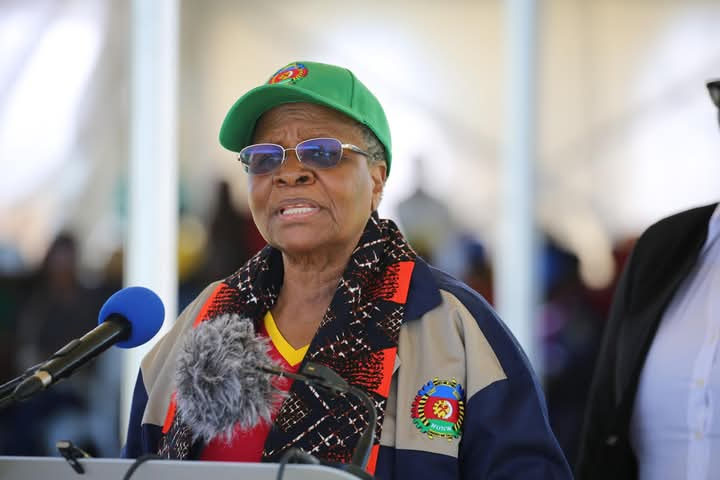The academics are wrong, the Government is wrong, the farmers’ unions (black and white) are wrong, the activists are wrong and the commentators are wrong.
And what is the source of all this confusion? One is philosophical and conceptual; the other is political. A single line in the Namibian Constitution about property and property rights has led to the philosophical/conceptual confusion about the land issue.And as if this was not bad enough, there enter the politics of ‘correct-speak’ and nation building, or should I say state building.Come to think about it, the land issue is the easiest problem to solve.It is not like HIV-AIDS for which there are no effective cures although there are a host of preventive measures.In fact, some people argue that the ‘real’ land question was solved way back at the 1991 land conference where it was decided that no historical and ancestral claims were to be entertained.What we are dealing with now is an imaginary land problem predicated on an imaginary lifestyle.It is a problem informed by two mutually reinforcing notions – property regimes and the politics of correct-speak.So years after the 1991 conference we are told that land is still a hot, thorny, explosive, contentious, vexed, burning issue or a time bomb – what a bunch of clichés.Right from the start, the land-reform process was premised on the wrong philosophical and political foundation.It was like building a skyscraper on a foundation meant for a hut.And because the problem has been ill defined and wrongly conceptualised, the solutions being proffered are either faulty or based on outdated 19th century notions about property.One such major flaw is our understanding and definition of property and whether land can be considered as part of the bundle of things commonly termed (private) property to be traded on the black market.So that the few lucky ones who own land can sell it, buy it, speculate with it, rent it out, or let it lie idle, and ultimately bequeath it to their children, husbands or wives, to the exclusion of other citizens.This approach to land raises fundamental issues that go beyond the usual basic questions of politics as to who gets what, when and why? Questions of rights, justice, sustainability and fairness all come into play here.The current Government resettlement programmes do not even come close to answering those questions.Resettlement is, both in theory and in its actual application, a selective and undemocratic process controlled from above.So you have a select group of people who satisfy the whims and caprices of a Government minister benefiting from it while others lose out.A classic case here is the ‘fishy’ fishing industry and the quota system where you have a public resource which is geared towards private profits.This is legalised theft and a form of primitive accumulation of wealth on a grand scale.Everyone in the country knows this system is rotten but nothing is being done to change it, precisely because the policy makers and a few individuals are the ones benefiting from this arrangement.This is Namibia’s ‘new’ political economy of theft.The same applies to land and will soon be extended to mining, if this has not been done already.Thus, contrary to the prevailing popular, official and academic claims that a process of land reform is taking place in Namibia, albeit at a slow speed, in fact the opposite is true.A process of land redistribution can take place without bringing about any fundamental reform and restructuring of the colonial and capitalist structures that were created and consolidated over a century of colonial rule.In fact, the Government is busy entrenching, consolidating and formalising the existing land-tenure regimes because it has essentially accepted, as a given, the historical foundations (capitalism and colonialism) upon which they have been constructed over more than 100 years of colonial plunder.And it has to be so because the problem has been cast in racial terms instead of its proper structural or class aspects.It is posed as a question of who owns the land and not how it is owned.In such a scenario, the answer to the problem depends on the colour of the person and not the type of property regime in place.The answer is, of course, a minority of white farmers estimated at 4 600 in both Namibia and Zimbabwe.The solution, we are told, is to buy back the farms at inflated prices or expropriate them Mugabe-style, slice them up and distribute them to a some blacks like a piece of Christmas cake.And our leaders will somehow magically find more land to distribute to some ill-defined landless individuals out there.No wonder then that the Government has even made some low-key provision for fencing in the Communal Land Bill, just in case more land is needed to create more farms for the expanding black elite.A single line in the Namibian Constitution about property and property rights has led to the philosophical/conceptual confusion about the land issue.And as if this was not bad enough, there enter the politics of ‘correct-speak’ and nation building, or should I say state building.Come to think about it, the land issue is the easiest problem to solve.It is not like HIV-AIDS for which there are no effective cures although there are a host of preventive measures.In fact, some people argue that the ‘real’ land question was solved way back at the 1991 land conference where it was decided that no historical and ancestral claims were to be entertained.What we are dealing with now is an imaginary land problem predicated on an imaginary lifestyle.It is a problem informed by two mutually reinforcing notions – property regimes and the politics of correct-speak.So years after the 1991 conference we are told that land is still a hot, thorny, explosive, contentious, vexed, burning issue or a time bomb – what a bunch of clichés.Right from the start, the land-reform process was premised on the wrong philosophical and political foundation.It was like building a skyscraper on a foundation meant for a hut.And because the problem has been ill defined and wrongly conceptualised, the solutions being proffered are either faulty or based on outdated 19th century notions about property.One such major flaw is our understanding and definition of property and whether land can be considered as part of the bundle of things commonly termed (private) property to be traded on the black market.So that the few lucky ones who own land can sell it, buy it, speculate with it, rent it out, or let it lie idle, and ultimately bequeath it to their children, husbands or wives, to the exclusion of other citizens.This approach to land raises fundamental issues that go beyond the usual basic questions of politics as to who gets what, when and why? Questions of rights, justice, sustainability and fairness all come into play here.The current Government resettlement programmes do not even come close to answering those questions.Resettlement is, both in theory and in its actual application, a selective and undemocratic process controlled from above.So you have a select group of people who satisfy the whims and caprices of a Government minister benefiting from it while others lose out.A classic case here is the ‘fishy’ fishing industry and the quota system where you have a public resource which is geared towards private profits.This is legalised theft and a form of primitive accumulation of wealth on a grand scale.Everyone in the country knows this system is rotten but nothing is being done to change it, precisely because the policy makers and a few individuals are the ones benefiting from this arrangement.This is Namibia’s ‘new’ political economy of theft.The same applies to land and will soon be extended to mining, if this has not been done already.Thus, contrary to the prevailing popular, official and academic claims that a process of land reform is taking place in Namibia, albeit at a slow speed, in fact the opposite is true.A process of land redistribution can take place without bringing about any fundamental reform and restructuring of the colonial and capitalist structures that were created and consolidated over a century of colonial rule.In fact, the Government is busy entrenching, consolidating and formalising the existing land-tenure regimes because it has essentially accepted, as a given, the historical foundations (capitalism and colonialism) upon which they have been constructed over more than 100 years of colonial plunder.And it has to be so because the problem has been cast in racial terms instead of its proper structural or class aspects.It is posed as a question of who owns the land and not how it is owned.In such a scenario, the answer to the problem depends on the colour of the person and not the type of property regime in place.The answer is, of course, a minority of white farmers estimated at 4 600 in both Namibia and Zimbabwe.The solution, we are told, is to buy back the farms at inflated prices or expropriate them Mugabe-style, slice them up and distribute them to a some blacks like a piece of Christmas cake.And our leaders will somehow magically find more land to distribute to some ill-defined landless individuals out there.No wonder then that the Government has even made some low-key provision for fencing in the Communal Land Bill, just in case more land is needed to create more farms for the expanding black elite.
Stay informed with The Namibian – your source for credible journalism. Get in-depth reporting and opinions for
only N$85 a month. Invest in journalism, invest in democracy –
Subscribe Now!










